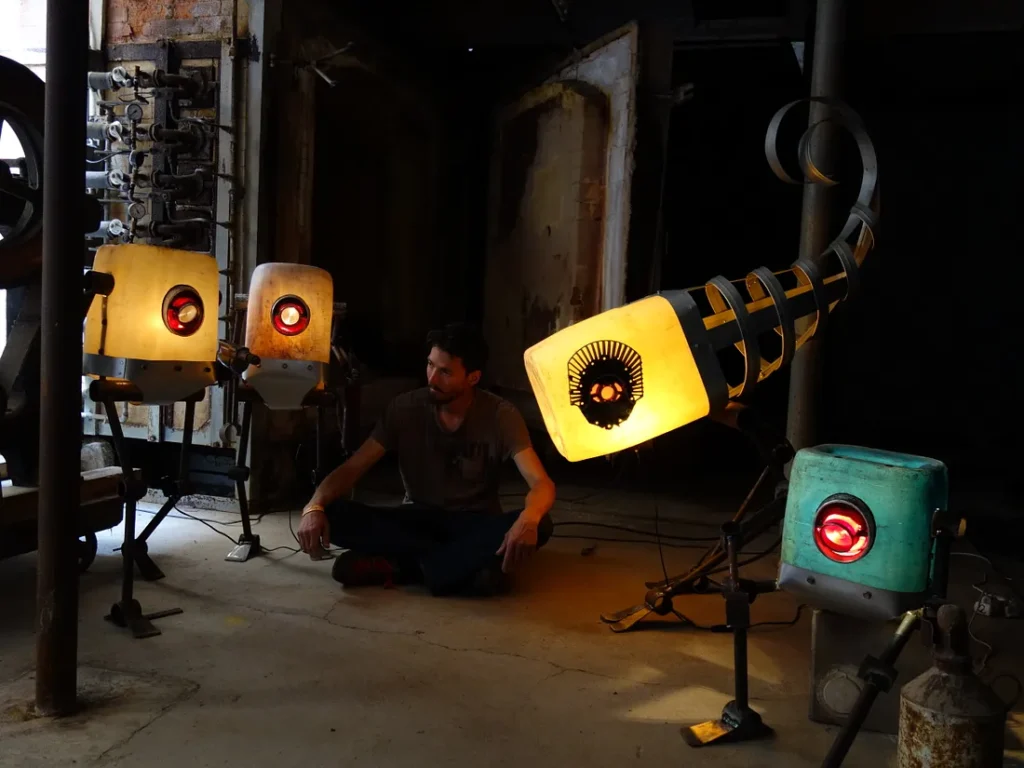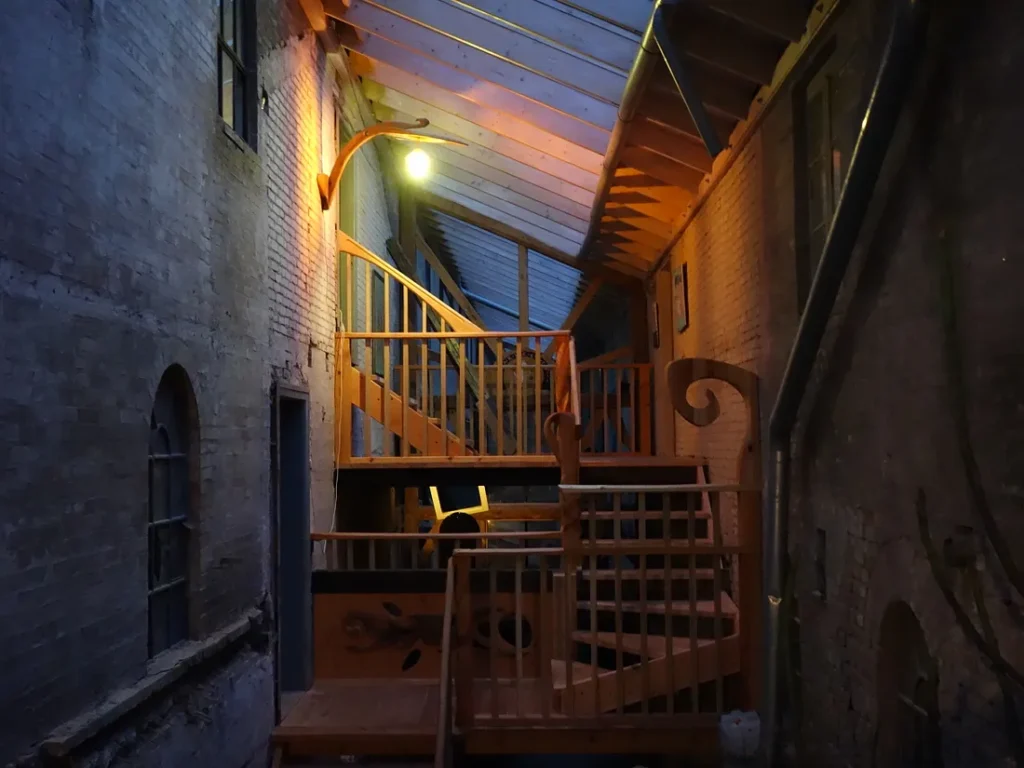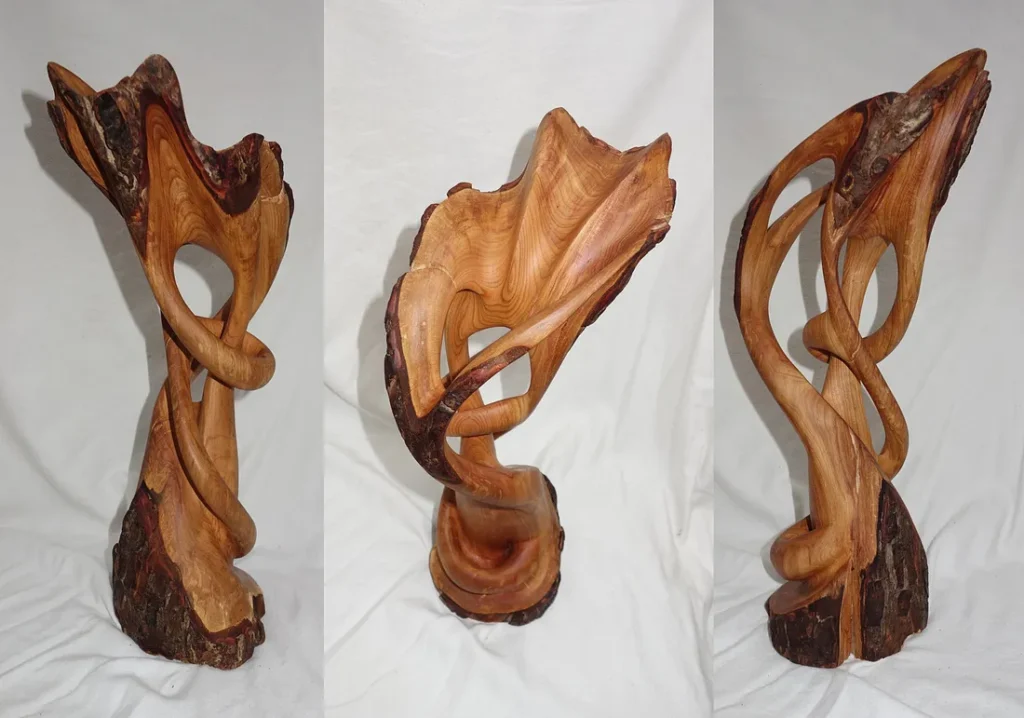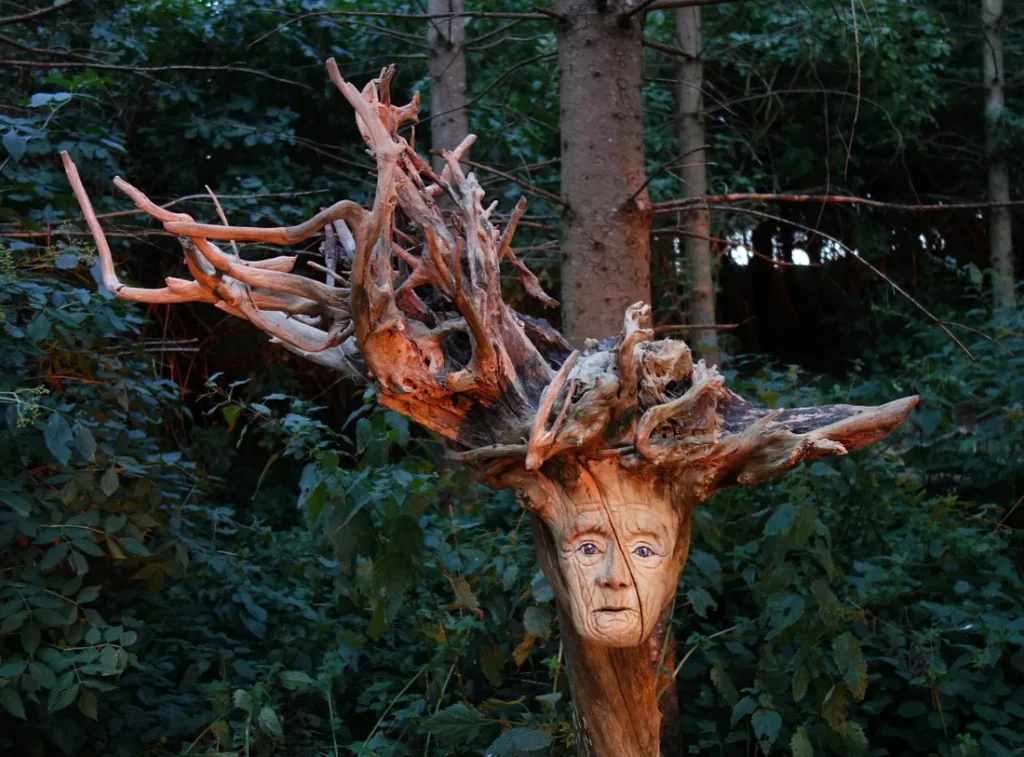AI, Art, and Meaning in Life
By Ides Parmentier
Apr 6, 2023 (Read on Medium)

I’m a self-taught artist and I dislike capitalism. I sell creations once in a while, but I’ve never made effort to do so, nor to promote myself. I’ve tended to put myself at the fringes of society. For over a decade I didn’t have a paying job or a steady address. At the same time, I was doing plenty of work. I was traveling around low budget, volunteering on organic farms, eco-villages, alternative projects, and Vipassana meditation centers. Always helping out while being fed and housed.
A base that I kept returning to over this span of time was a large, old, four-story ceramics factory, surrounded by nature in the Danish countryside. It was operational for over a century and a half, before closing down in the nineteen eighties.
Parts of the factory were being converted into a sort of cultural center by a ragtag, egalitarian, and ever-changing group of international volunteers. It was a place of opportunity of the non-monetary kind, where you had the space and materials to learn, build, create, and explore, forming connections while you did so. Sizable workshops for woodwork, metalwork, and ceramics, a huge dedicated art space, piles of materials, donated and reclaimed, the possibilities were endless.
The rent and costs were paid for by renting out the event space and other facilities that we built within the factory with the help of fundraising. Most of the food came from dumpster diving, a vegetable garden, and a greenhouse. Individually there was no need to earn money, so my time was taken up with the social life driving the place, contributing manually and organizationally to the project, and producing art.
With no financial needs, drives, or motivations, art was about exploration, developing skills, self-expression, working through emotions, beautifying our surroundings, and so on.

On the threat of AI to artists
I’ve read and watched a lot recently about the developments in AI and the threat of AI to artists. Of course, it is trying to function as artists within the capitalist economy that is under threat. I haven’t done that, so none of my reasons for making art are threatened.
I feel for all the people who have dedicated their lives to developing skills in service of the creative industries, to earn a living and build a career. The extreme ease of AI content creation and its steep development curve including more and more aspects of creative expression and production screws most of them.
With content automation following machine automation, we’re facing the next step in the reduction of the need for humans in development and production processes.
Perhaps, instead of a new proliferation of soul-killing bullshit jobs, to borrow David Gaeber’s term, to make up for the decimation in employment that we’re facing, it might be time for universal basic income to receive more serious consideration, but that’s a topic for a different article.
How things will evolve from here is an open question. We can only speculate, and I don’t mind doing that for a bit, but it’ll be informed by my personal tendency towards negativity bias.
With that, my expectation would be that human-created commercial artistic content would become a niche thing, with some organizations making it part of their brand identity. There could be a certification label. Something like ‘Non-augmented human produced’ or ‘bio-human creation’.
Whether we’re talking about digital design, layouts, logos, digital art, commercial jingles, video animation, text content, the list goes on and on, all of them can already, or will soon be able to be generated with a prompt. You can generate as many as you like until you’ve found what you’re looking for.
As many have pointed out, it will radically change how creative people function within the capitalist economy, and now already their market value is plummeting.
The next generation of creative people might be creative differently. New ways of being creative might develop through people who grow up surrounded by new tools that drastically change the relation to the creative process. I can’t tell you what that might look like and what might come out of that. I don’t think anyone can. It could be amazing. You never know.
At least that’s the most positive framing my mind is willing to allow at this point. It makes it seem like there’s no need to be pessimistic. We can just embrace it and be dazzled. But here’s the problem:
For kids to grow up with these tools and develop new ways of being creative, doesn’t there need to be some kind of human-paced stability? Don’t the tools need to stay the same for a while? If it takes a human a long time to truly master a tool and “game-changing” (I’m starting to despise that word) new tools are released every five minutes, then we’ve already arrived at the point where the rate of change makes a mockery of the idea of us really mastering anything digital from now on. All that’s left is for us to try to ride the tsunami. At least try to keep our heads above water and fight against being swallowed by the unstoppable force of the current.
It’s this whole human thing of dedicating oneself to an artistic craft that is getting bypassed here, the notion of dedicating ten thousand hours, to become a master at it. What we seem to be moving towards is a form of hypercharged instant gratification service. And low effort implies low value. The world will become so saturated with artificially perfect-seeming artistic content, floating to the top in oceans of rubbish, that we won’t be amazed or excited by anything for very long anymore.
If perfect-seeming content will be everywhere and can be generated with perfect ease, then the thrill of discovery, both within ourselves and in the wider world, seems destined to become a thing of the past.
Right now there’s plenty of talk about the art of prompting. Good and elaborate prompting supercharges the quality of the output of generative systems. But for those who are thinking to make a career out of that, how long do you think that will last? How long before you can just talk to the perfect AI assistant who learns how you think as you use it, attuning itself to you just like companion AI chatbots like Replika are already doing?
What will be the use of prompting when you can just ask it for whatever content you want to be generated just by talking to it and clarifying what you want in conversation and the multi-modal AI you’re talking to can just generate it straight away?
If you think this won’t happen, I have news for you. As I was editing this text I came across this video, demonstrating it’s actually already here.
To me, it feels like a kind of infantilization, like a child asking its parent for all the things it can’t do for itself. Could having an assistant who’s perfectly competent and dedicated to our instant gratification at all times be a good thing for us? I honestly don’t think so.
On effort, accomplishment, meaning, and satisfaction
There is a trade-off between outsourcing effort and personal human competence. The classic example of this is Google Maps, making it so that most can’t deal with physical maps anymore. I have nothing against Google Maps and I like not having to deal with paper maps. I agree it makes things a lot easier, but it does demonstrate how ease and dependence go hand in hand.
We should consider how far we want this to go.
I’m reminded of the imagery in Wall-E where all the humans are obese and their bones can no longer support their weight because they never use them. They move around in hover chairs, catered to by tech geared towards their comfort and satisfaction.
It’s one thing to have hover chairs for people with mobility issues. It’s quite another for us to all give up on walking because why bother if the tech can do it for us? Not that I think that would happen, but you get what I’m saying here right?
Effort and satisfaction are connected. The harder the struggle is, at the edge of your abilities, trying to sculpt a piece of wood into a shape that ends up exceeding your expectations, the stronger the reward tends to be. This is true of many human activities that make life feel meaningful.

Satisfaction doesn’t last and if the effort is eliminated, we might become harder to satisfy than ever. However dazzling the content may be, we’ll just become numb to it.
The thrill of the metaphorical hunt, the challenge to our skill levels, the feeling of flow in mastery, and the feeling of accomplishment are all taken out.
I suppose that’s what video games are for nowadays. They can make up for a lack of these things in daily life. Maybe unconsciously that’s their appeal. Things about sentient life that make life feel meaningful are outsourced to technology and then we immerse ourselves in fantasy worlds that can give us some of those same feelings back again.
When content creation is automated and geared towards instant gratification and even the imagining is largely outsourced to the tech, a lot of what is valuable in humans making art evaporates. The challenge is gone, and without challenge, you learn and grow a lot less. You get used to not having to make much effort. You could say that makes life easier, but it also pacifies and infantilizes.
Effort and reward are connected, or used to be. If the reward comes instantly and without effort, where is the sense of accomplishment supposed to come from? We end up with a kind of emptiness of meaning while saturated with endless content.
Life will feel less meaningful, but only if we submit. I personally don’t much like the idea of being pacified with endless content by an artificially intelligent babysitter so in tune with my desires that I feel loved and supported by it. I think we would be surrendering some of what makes us essentially human, outsourcing to the machine the feeling and experience of connection.
Concluding remarks
I like the feeling of real paint, the tactile, physical nature of it, how it moves and blends when you smear it, how it smells, and so on. I like how wood can both resist and help what I’m trying to make emerge out of it.

I think there’s a lot of value in continually encouraging people from the very young to the very old to keep getting their hands dirty. To not replace everything with screens.
For the majority, keeping up with digital technology in the hope of turning their creativity into a livelihood is a thing of the past. I don’t think this has sunk in yet with many.
I watched a video the other day by an educator talking about the concerns around prospective students using AI-generated art as submissions in their application to the digital art program. The whole thing seemed beside the point. I couldn’t for the life of me see why people would keep investing financially in digital art education when job opportunities are evaporating. Students faking their submissions will be the least of their worries.
There is an AI revolution happening. Those who think it’s all just hype are not paying attention. There were over a thousand AI tools launched in just March alone. Things will just get wilder from here. The functioning of human artistic expression within the capitalist economy seems doomed. Perhaps I’m wrong about that. I know people will fight to prevent it, and I wish them all the best. But if I’m not wrong, then maybe that just means it’s time for us to mentally divorce the two.
If everything is automated, we will have to move towards a different way for society to function. Universal basic income is one direction we could take. If you think that’s too unrealistic, I suggest reading Rutger Bregman’s book ‘Utopia for Realists’.
I mean, you never know, right? The future is unpredictable, especially now. Perhaps AI could be the thing that helps us get past capitalism by disrupting so much that the system just can’t keep functioning as it has.
Commercialization was never a very good thing for people’s innate creativity anyway.
I think creating art for its own sake, whatever level one is at, is straight-up good for humans, just like exercise, meditation, yoga, reading, and so on.
AI is not going to change that. So don’t let it stop you.